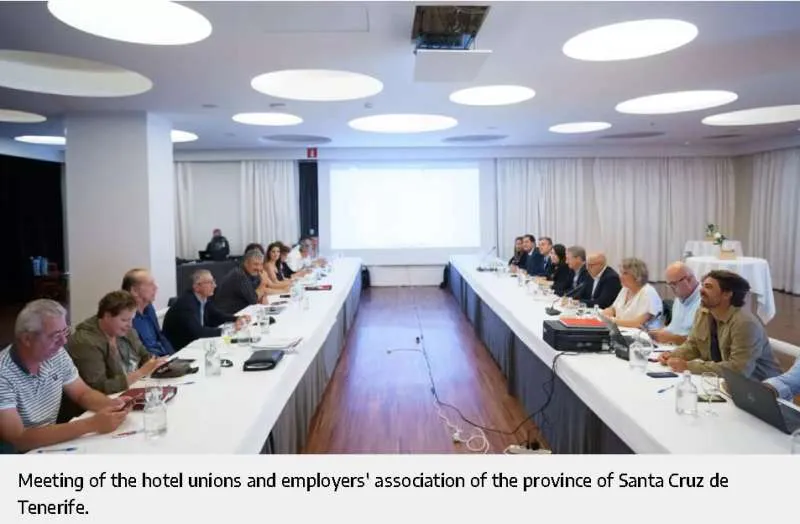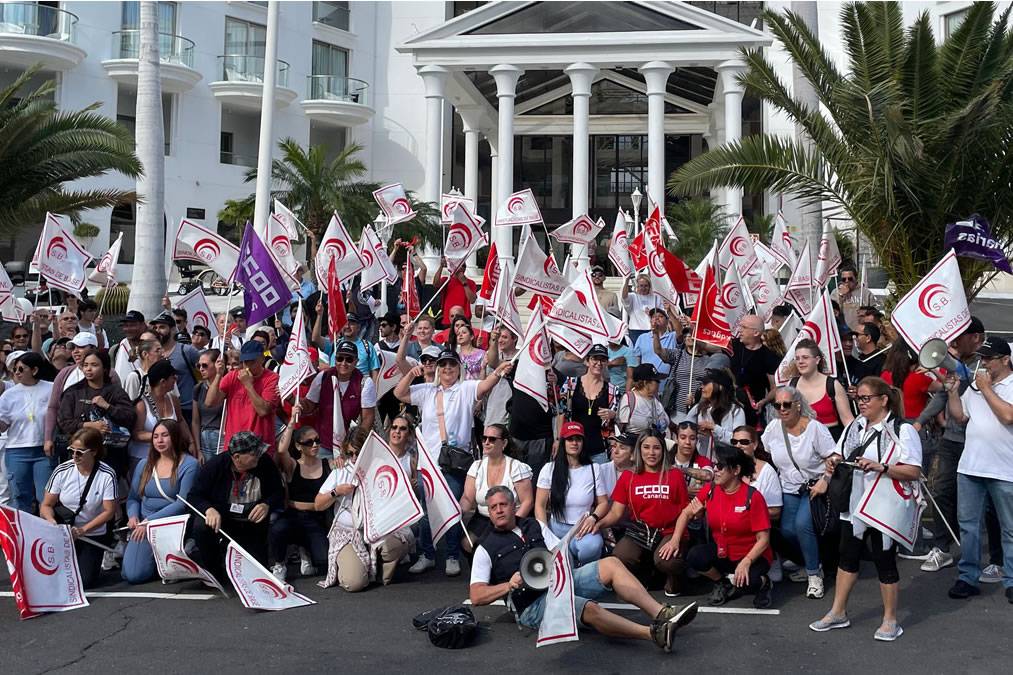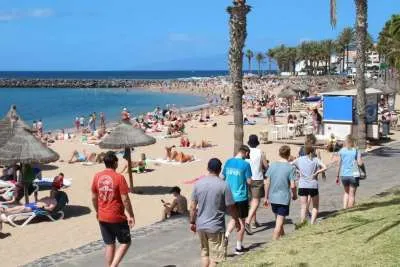Tenerife hospitality employers and unions reach preliminary agreement to prevent summer strikes
- 25-06-2025
- Business
- Canarian Weekly
- Photo Credit: Emma Davies / BBC
A preliminary deal has been struck in the ongoing negotiations over the hotel and hospitality sector’s new wage agreement in the province of Santa Cruz de Tenerife, to prevent strikes every Friday over the summer, but not everyone is happy.
The employers’ groups Ashotel and Aero, along with most trade unions, including Sindicalistas de Base, UGT, Intersindical Canaria, and USO, all signed the agreement late last night (Tuesday). The Canary Islands President, Fernando Clavijo, and the Regional Minister for Tourism and Employment, Jéssica de León, acted as mediators during talks at the regional government headquarters.
The agreement still needs to be ratified by the unions’ members and employers’ boards, but it has averted the immediate threat of further strike action. Unions had warned they were prepared to call weekly strikes every Friday throughout July and August, following a similar walkout earlier this year during the busy Easter holiday period.
In recent weeks, both sides had begun to narrow their differences. Employers offered a 13.5% salary increase under the new agreement, while unions had previously been calling for a 6.5% immediate rise before considering further points.
CCOO Refuses to Sign, Accusing the Government of Siding with Employers
Notably absent from the agreement is one of Spain’s largest unions, CCOO, which has sharply criticised both the deal and the government’s role in the negotiations.
In a strongly worded statement, the CCOO accused the Canary Islands Government of favouring business interests, calling the negotiation process a “vertical table”, a term often used in Spain to describe negotiations heavily weighted toward employers.
According to the CCOO, the financial difference between the latest proposal and the one that existed before Easter’s strike is minimal, roughly €20 more per month for workers. They also expressed frustration that anyone who has participated in strikes will not be able to recover wages lost during industrial action.

The union also raised concerns that some workers, particularly those with pre-existing wage agreements, will see much smaller increases due to salary absorption mechanisms, estimating the real increase for many would be closer to 3.75%.
The CCOO described the deal as a significant step backwards, particularly for workers in the restaurant sector, who will see only a 0.5% raise. Other criticisms included delays in full sick pay benefits (now only available after one year of employment), and the loss of bonuses for workers who voluntarily change employers, a move CCOO described as "punitive" for staff seeking better conditions elsewhere.
They also warned that the introduction of irregular working hour clauses could allow companies to demand longer and more unpredictable shifts, undermining efforts to introduce shorter working weeks in the future.
Implications for the Island’s Tourism Industry
The hospitality sector is one of Tenerife’s most important industries, and any prolonged dispute could have had knock-on effects for both residents and the millions of tourists who visit the island each year. With this preliminary agreement, at least for now, the risk of summer disruption appears to have been avoided, but lingering tensions remain.
As negotiations move towards final ratification, CCOO’s refusal to sign suggests that the debate over wages and working conditions in Tenerife’s booming hospitality sector is far from over.


























































